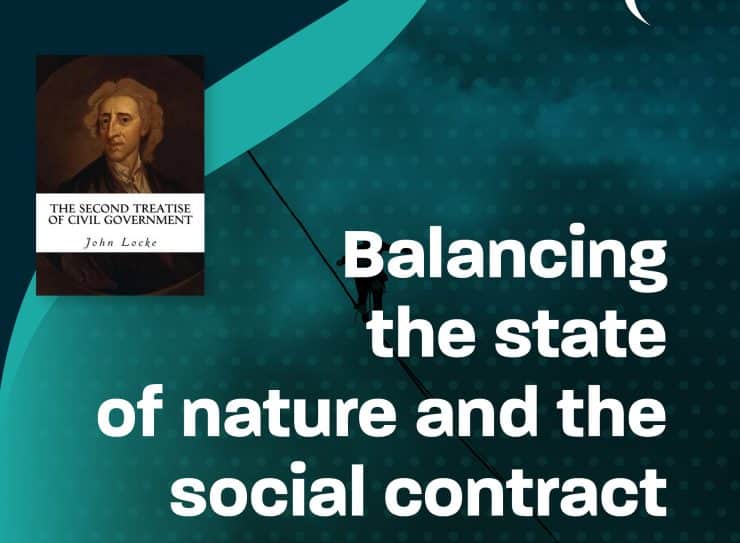Liberal Read No.25: Balancing the state of nature and social contract
BOOK REVIEW – Nayeli L. Riano
“Second Treatise of Government” by John Locke, 1690

BOOK REVIEW – Nayeli L. Riano
“Second Treatise of Government” by John Locke, 1690

When we reflect on social contract theory and state of nature theory within political philosophy, John Locke is one of the first thinkers to come to mind. Of course, Locke was not the only thinker to have written on these two subjects. Thomas Hobbes and Jean-Jacques Rousseau also produced notable and influential accounts on this topic. By the state of nature theory, we refer to theories about the titular “natural state” of mankind before the formation and institution of government; in other words, theories about the state of mankind absent government. By social contract theory, we refer to theories about the reasons for which individuals in a state of nature would choose to leave this natural state and agree collectively to form and institute a government. Locke’s unique ideas about these two concepts have cemented his legacy in political philosophy.
These ideas are presented in Locke’s Two Treatises of Government (1689), specifically his Second Treatise of Government (1690). The Second Treatise is widely accepted as one of the foundational works of liberal thought, though the wider implications of Locke’s thought for contemporary political philosophy are scarcely agreed upon. An introduction to the work by Richard Ashcraft, for example, in 1987 explains that Locke’s Two Treatises were viewed thirty years ago as “the classic expression of liberal political ideas” since it was read “as a defense of individualism and of the natural right of individuals to appropriate private property.” Ashcraft writes that the Second Treatise, especially, “was often characterised as the first secular expression of political theory in the modern era.”